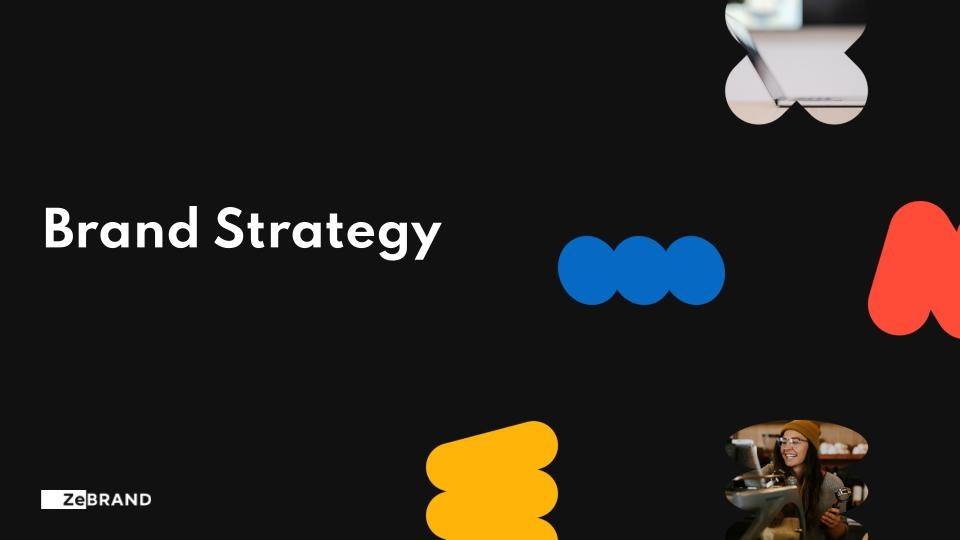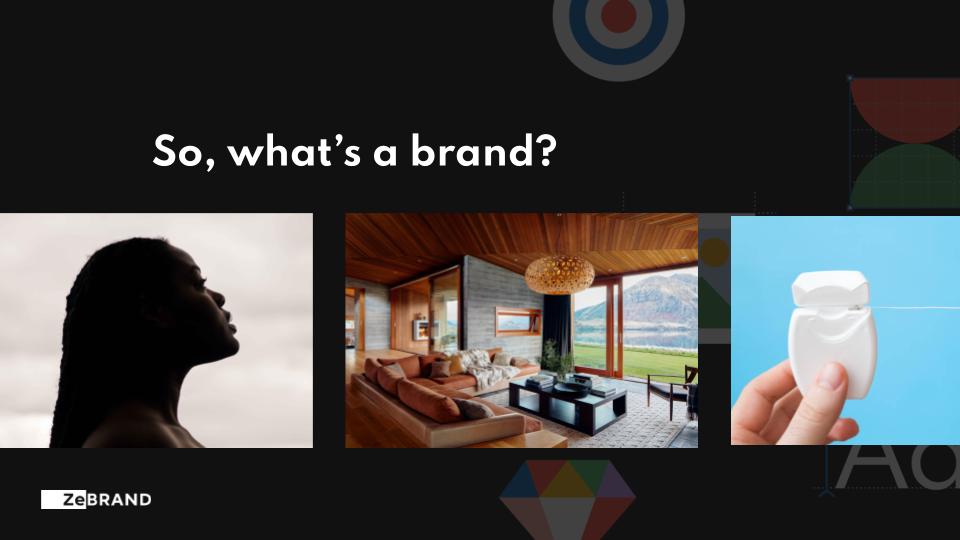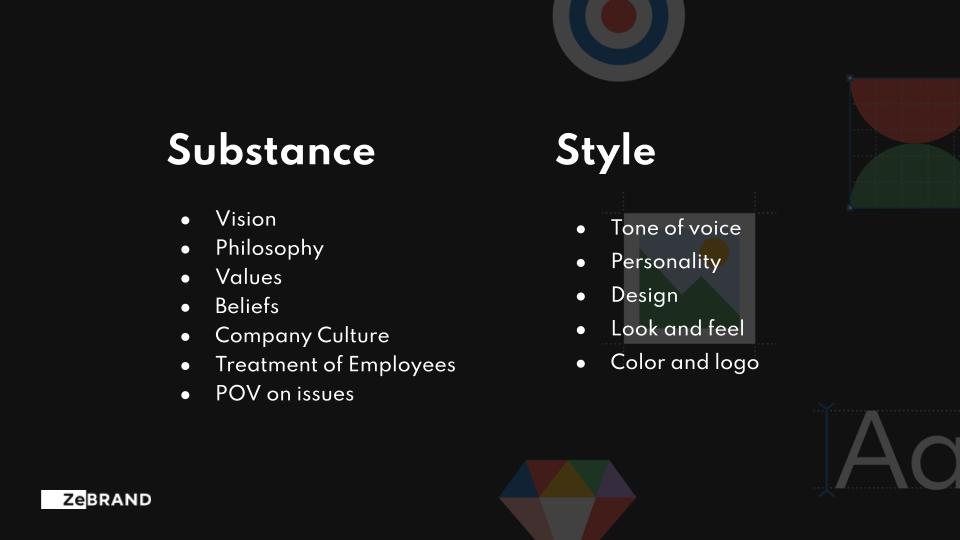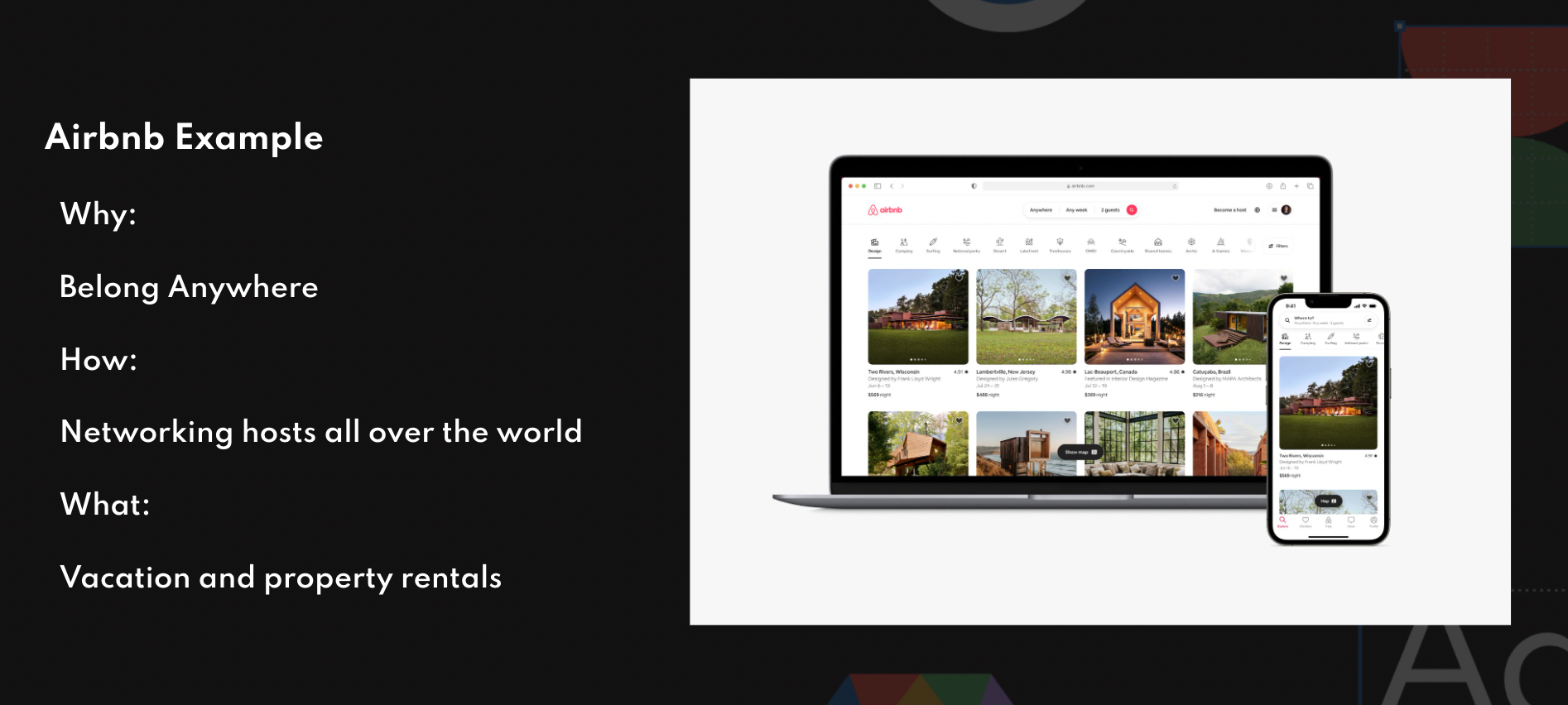Demystifying Brand Strategy with Brand Strategist, Zachary Lamb

This webinar has been edited for brevity and clarity.
Zachary Lamb is a sociologist turned brand strategist that’s worked at advertising agencies, brand consultancies, and now with ZeBrand. His past clients have included Walmart, Target, Buffalo Wild Wings, Gatorade, and Fiat Chrysler.
Stay tuned for our discussion with Zachary Lamb as he demystifies everything to do with brand strategy.
Too many strategies?
There are so many different types of strategies out there.
When working with entrepreneurs, many have a good handle on their business strategy because they already had a compelling, personal reason to start their business.
So they dive into the business side first, then push brand strategy aside as they think they'll do it later.
They think, "right now, I'm going to focus on the business aspects," which makes total sense, but what I hope to talk about today is one thesis: brand strategy is business strategy.
It drives all aspects of your business and helps shape your business goals.
Decades ago, you could just start a business, and brands weren't developed. That's because there just weren't that many options.
With any consumer product, even in the B2B spaces, there wasn't the kind of diffusion of competition that we see today.
Many businesses are now trying to get the same customer with similar products, if not almost identical.
In this climate now, the brand has risen. So I'm buying the product and buying into who you are and your DNA as a business.
What do you value? What are your philosophies? Why do you exist as a business?
That's what we're really buying into today.
So a brand strategy will drive your business results.
Suppose you don't have like an amazingly tight brand strategy. In that case, it's hard to motivate people to get them emotionally connected to your business and your offering in a relevant way.
The goal and job of brand strategy are to drive the ultimate business results. It's foundational to everything.
What is a brand?

So what's a brand? To think about it simply, let's compare it to us as humans. Imagine anybody you meet; they've got a particular way about them. What is their personality? What's their tone? Are they charismatic or not? How do they talk? We'll call it style.
There's also substance. What does the person value? What are they like on the inside? What are the things that are motivating to them as a person? The depth and meaning.
A brand is no different than that.
You encounter it at first, in terms of its style, like how does it look? What are its colors? What's the logo? As then the substance. What is their philosophy?
These are the two components we can break them into, and it goes by many different names.
Substance vs Style

In the business world, it's what's your brand vision? What's your brand philosophy, brand values, or brand beliefs?
Increasingly today, consumers want to know what your company culture is. Do you treat your employees well? What's your stance on social issues today? Over the last ten years, that's just exploded. There's consumer interest in not only what you offer but the way in which you offer that as a company.
That's increasingly coming onto the market under the microscope because people are so educated now. They know about all of the issues that are facing society. So they expect brands to take a stand on them and have a point of view. Perhaps if the government can't help, businesses can help solve and take society where we all want it to go.
Then style includes tone of voice, personality, design, look and feel, colors and logos.
It's super important. You have to have a recognizable, consistent look and feel and style in the world. But really, it's the substance that should drive the style.
So before that, starting with the substance is the best way. You can think of two competitors in the same market, in the same category, and have different beliefs and values. Then that would drive how they present and look and feel differently.
What is brand strategy?
Why, How, and What
So for starters, start with why. How to find your brand substance begins with this notion of why.
The above image is a pretty famous diagram from Simon Sinek. He's a very mired brand strategist/brand thinker who broke down this straightforward way of looking at branding. That is:why, how, and what.
Why = what is your cause. As I've been talking about, the substance. What do you believe?
How = what are your specific processes? What am I doing as a company to ensure I'm advancing and advocating that "why"?
What = the result is what I'm putting into the world, what I'm selling, and what I'm doing.
Using Airbnb’s Brand Strategy As An Example

It's helpful to look at an example. Airbnb is one of my favorite brands because they're so well dialed in, consistent, and have a unique point of view of "Belong anywhere."
Their why is that they want travelers and their network to feel like a local, that they belong where they are, and that's something a hotel can never offer. That's what got them started.
"What" they offer is just vacation rentals and properties, and "how" they do that is by linking a bunch of independent people worldwide.
It's all on the surface of this notion of belonging anywhere. You can see in their offices it's printed right on the wall.
So there's "why," and there's substance.
That should be the filter for even things like your internal company practices. For example, how do I structure my teams, and how can we work together.
That's what makes a good brand strategy when you can solve five different problems with one solution. It keeps everybody in the company marching forward, beating the same drum, believing they're helping advance a cause when they come to work every day.
So employees of Airbnb can come in and feel good that they're helping people belong anywhere.
I think Airbnb is a well-known great example of how powerful a brand wide and the notion can be.
"Why" is so important because that's the thing that connects to our psychology or our needs for belonging—or standing out or our needs for status and ego. It's the core human needs that connect us emotionally to brands. I see a brand that can help me achieve what I'm trying to do in the world.
I'm the kind of person that is connected to a company like that. We share the same set of values, therefore, that can communicate things about me.
Why is the brand strategy the most important?
The Everyday Shopping Experience
When so many companies are the same, branding is everything. We all have this shopping experience, where we see nothing different. For example, when you're shopping for milk, even things like the shape of the bottle can communicate something to you.
So the brand is the thing that drives all sorts of business strategies because it's the thing that will stand above the product and allow us to connect to it.
So the brand is the thing that drives all sorts of business strategies because it's the thing that will stand above the product and allow us to connect our identities to it as consumers. So that's what we're shopping for.
When we're shopping, it's that warm glow of our identities, and we want to connect emotionally to all the products we buy. But, even in simple items like dental floss or toothpaste, it still matters.
Nielsen Research
Looking at new Nielsen research today:
- 80% choose brands that express their identity
- 79% say a brand's vision is highly important to them, getting into that piece about how you operate as a company, what you care about, what are you trying to do in the world
- 64% say how a brand treats its employees and the environment matters
We've seen, at least in the U.S. over the last few years, just social disconnection and discontentment. So brands are grabbing pieces of that and saying, hey, if you believe this, then come to us. It's a really powerful tool.
Examples of Awesome Brand Strategy Campaigns

Nike
Nike with "just do it" and "find your greatness." Here's a brand saying you can view yourself this way. Everybody can be an athlete, and you can get out there. You don't have to be Tiger Woods. You don't have to be LeBron James. You can do it too. Nike is giving you permission to go find your own greatness, whatever that means to you.
Apple
Shot on iPhone, I love this campaign. It's just so simple. Anybody can be a photographer, and anybody can be an artist, so see yourself that way. Brands are giving you permission that's emotionally motivating and meaningful.
REI
REI is an example of a brand trying to make a cultural statement. They are trying to lead culture by saying don't spend money shopping on Black Friday; instead, go outside and do something. So you can see that an #OPT like that helps communicate their brand purpose is all about what they're trying to do.
Dove
Dove does the real beauty campaign. They try to shape conversations around beauty and make them more inclusive and diverse. This campaign has won many awards. Everybody's doing that now, but they were the first from a major brand to make makeup, like that statement.
How do I start my brand strategy?
Define→Design→Deliver
I like this simple sort of iterative approach to defining brands. Focus on the Define stage first, and that's because your substance needs to inform your style, colors, logo, and look.
So what is that brand DNA, and what are the parts?
Anytime you're starting something, you need to look at what are my competitors doing? How am I going to be different? It would be best if you got an understanding of the marketplace that you're trying to enter.
What's the lay of the land there? What positions are the competitors trying to stake out so that I can be different and stand out? So in the process of defining and coming up with my brand story.
One of the main first steps is that competitive analysis. Who am I for? What makes them tick emotionally? Who is my customer? How do they see themselves with my brand? How do I define that relationship? So that's another piece of the analysis that ultimately leads to that brand story and market positioning.
So you'll do a personalized branding session. Other coaches and I can work with you one-on-one for a 45-minute session to go over everything in the Define stage or whatever questions or issues you have at that moment.
Then ZeBrand can help you get going very quickly with some simple questions about how you feel and look, which can lead to the logo, color, typography, photography, and a toolkit of assets you can start using in your marketing and in social media. You are culminating together a website template, social media kit, pitch deck, and brand story page.
You take everything that had been discussed and designed using the tools and your personalized branding sessions to land on the simple, distilled brand story page.
The process never ends and you can always look back and discuss it.
If you have any questions please contact us here or get started with ZeBrand today.


